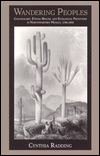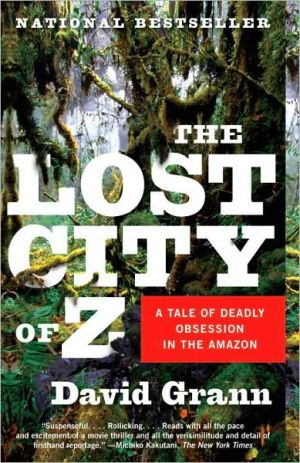Wandering Peoples: Colonialism, Ethnic Spaces, and Ecological Frontiers in Northwestern Mexico, 1700-1850
Wandering Peoples is a chronicle of cultural resiliency, colonial relations, and trespassed frontiers in the borderlands of a changing Spanish empire. Focusing on the native subjects of Sonora in Northwestern Mexico, Cynthia Radding explores the social process of peasant class formation and the cultural persistence of Indian communities during the long transitional period between Spanish colonialism and Mexican national rule. Throughout this anthropological history, Radding presents...
Search in google:
Wandering Peoples is a chronicle of cultural resiliency, colonial relations, and trespassed frontiers in the borderlands of a changing Spanish empire. Focusing on the native subjects of Sonora in Northwestern Mexico, Cynthia Radding explores the social process of peasant class formation and the cultural persistence of Indian communities during the long transitional period between Spanish colonialism and Mexican national rule. Throughout this anthropological history, Radding presents multilayered meanings of culture, community, and ecology, and discusses both the colonial policies to which peasant communities were subjected and the responses they developed to adapt and resist them.Radding describes this colonial mission not merely as an instance of Iberian expansion but as a site of cultural and political confrontation. This alternative vision of colonialism emphasizes the economic links between mission communities and Spanish mercantilist policies, the biological consequences of the Spanish policy of forced congregación, and the cultural and ecological displacements set in motion by the practices of discipline and surveillance established by the religious orders. Addressing wider issues pertaining to ethnic identities and to ecological and cultural borders, Radding’s analysis also underscores the parallel production of colonial and subaltern texts during the course of a 150-year struggle for power and survival. Booknews Examines the persistence of ethnic polity and peasant economy among the native peoples of Sonora during the time of transition from the Spanish Imperium to the Mexican Republic. Treating the Mexican frontier missions as a site of political and cultural confrontation rather than just instruments of Iberian expansion, the author explores the biological consequences of Spanish policies of forced
About the SeriesList of IllustrationsPrefaceAbbreviationsIntroduction: The Social Ecology of the Sonoran Frontier1Pt. 1Los Sonoras and the Iberian Invasion of Northwestern Mexico1Ethnic Frontiers in the Sonoran Desert212Amerindian Economy in Sonora473Native Livelihood and the Colonial Economy63Pt. 2The Intimate Sphere of Ethnicity: Household and Community4Sexuality, Marriage, and Family Formation in Sonora1035"Gypseys" and Villagers: Shifting Communities and Changing Ethnic Identities in Highland Sonora142Pt. 3Rival Proprietors and Changing Forms of Land Tenure6Land and the Indian Comun1717Peasants, Hacendados, and Merchants: The Cultural Differentiation of Sonoran Society208Pt. 4Ethnogenesis and Resistant Adaptation8Cultural Endurance and Accommodation to Spanish Rule2499Patterns of Mobilization264Conclusions: Contested Space302Notes311Glossary357Select Bibliography363Index391
\ BooknewsExamines the persistence of ethnic polity and peasant economy among the native peoples of Sonora during the time of transition from the Spanish Imperium to the Mexican Republic. Treating the Mexican frontier missions as a site of political and cultural confrontation rather than just instruments of Iberian expansion, the author explores the biological consequences of Spanish policies of forced








